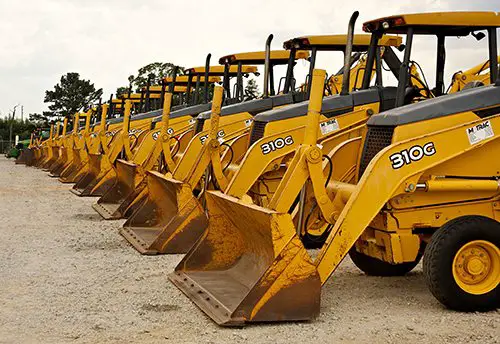As construction industry continues to record tremendous growth the demand for Heavy construction Equipment in Africa is also on the rise.
If you’ve ever bought or sold heavy equipment, you know there’s a lot at stake – even if it’s just one excavator, a bulldozer, or a dump truck.
If you’re dealing with larger quantities or entire fleets, there is huge financial investment involved, and you want to be sure that you’re getting the best value—whether you’re buying or selling.
Understanding what influences the price of used equipment will give you a better idea of its true value, which will make it easier to sell, and gives buyers more confidence when they buy.Here are some of the main factors that affect equipment pricing in Africa:
1. Supply and Demand
Just like in any other market, the laws of supply and demand affect equipment prices.
As demand goes up or supply goes down, prices rise as businesses compete for available construction equipment. Likewise, if the market is saturated with a particular type of equipment, buyers have the advantage.
To effectively manage a fleet of equipment you need to look outside of your region when you buy or sell.
As a seller, you can reach buyers in areas where supply is low and demand in high. And as a buyer, you can avoid paying too much by buying from areas where there’s an oversupply of equipment.
2. Market Conditions & Economic Climate
Economic and market conditions probably have the greatest impact on supply and demand, and therefore on the price of used equipment.
When the economy is in a downturn, everyone watches their bottom line very closely. They’re usually less willing to pay higher prices for equipment, or won’t be afraid of lengthy negotiations to get a price they want.
At the same time, the need for equipment goes down, and more companies sell their under-utilized equipment, making it a buyer’s market.
3. Manufacturer
There are lots of equipment manufacturers out there, but a few dominate the market.
Many people will only buy one or two particular brand of equipment, and that brand loyalty is reflected in annual sales of new and used equipment around the world.
People are often willing to pay more for a name-brand – they’ve either had good results with it and trust it, have a good relationship and history with the dealer of manufacturer, or the name itself often simply implies a certain level of quality.
In some cases lesser-known and possibly less expensive brands of equipment may do the job just as well. Having access to detailed information about the equipment and being able to compare models side-by-side better helps buyers determine its value.
4. Model and Features
Standard models fluctuate less in price and are often easier to sell than specialized pieces of equipment. And more potential uses means more potential buyers.
If you have a specialized item to sell, it’s important to market your equipment to the biggest audience possible. Features and attachments can have a significant effect on the selling price of equipment—either positive or negative.
An attachment or feature that appeals to one buyer may deter another buyer – so if you’re selling, again it’s important to reach a large pool of potential buyers.
6. Condition
If an equipment is expected to perform, then condition should be one of the most important aspects when it comes to determining price.
Any piece of equipment, regardless of age, won’t fetch a good price if it’s in poor condition overall. But older equipment that’s been well-maintained or lightly used can still sell for a respectable amount. And appearance can make a big difference too.
Having equipment painted, repaired or even just cleaned often results in a higher price. And if more detailed information such as maintenance & repair records, history, and proof of ownership can be shown, then buyers will have more confidence and are generally willing to pay more.
